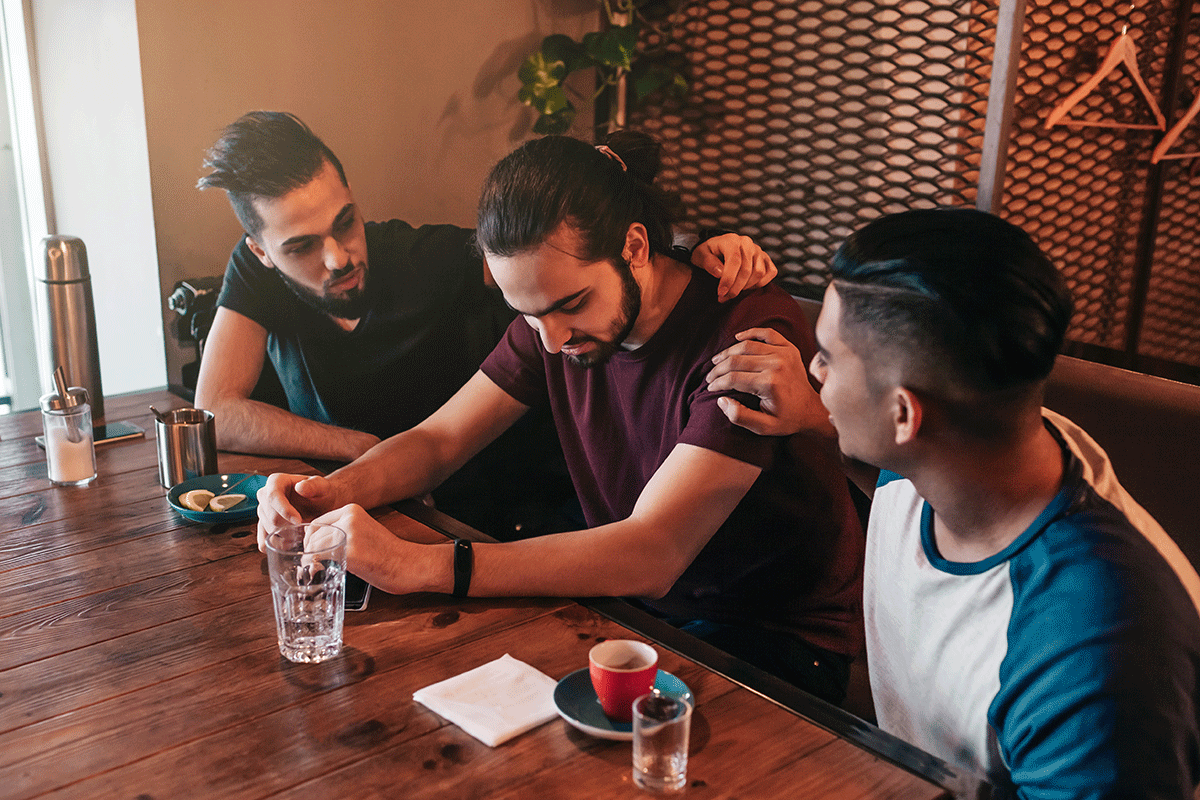“Few experiences in life quite match the feelings of horror, fear, helplessness, and grief that families experience when someone they love becomes addicted to alcohol or other drugs. They watch in dismay as the addict becomes alienated from the family and undergoes profound changes. Activities that once brought pleasure are abandoned, old friends are pushed away, and the addict withdraws into a world that is inaccessible to anyone who tries to help.” ~ Beverly Conyers, Addict in the Family: Stories of Loss, Hope, and Recovery According to a 2014 report by the Substance Abuse and Mental Health Services Administration, illicit drugs are being used in America at the highest rate in at least a decade. 21.5 million Americans aged 12 years or older– more than 1 out of every 12 people – met the criteria for a substance abuse disorder. Furthermore, 27 million people admitted to using an illicit drug at least once within the past month – over 10% of all people aged 12 or older. Because addiction is a progressive disease that exists on a continuum where drug use can turn into drug abuse, dependence, and addiction, this piece of datum is especially troubling. What do these statistics really mean? They mean that it is entirely possible that someone you care about – maybe even someone in your family –is using or abusing drugs. If that is the case, early intervention and professional help is what they need the most. To that end, let’s look at several warning signs that might indicate that your loved one may be on drugs.
Sign #1 That Your Loved One Is on Drugs – Secretive Behavior
Addiction is a disease that thrives on secrecy. Your loved one doesn’t want you to know what they are doing, because you will try to stop them. Examples of excessive secrecy might include:
- Hiding or encrypting their cell phone
- Erasing text or phone calls
- Leaving without telling you where they’re going
- Locking you out of their room or vehicle
- Hanging out with a new set of friends that you never get to meet
- Deflecting when you ask questions
- Defensiveness
Sign #2 That Your Loved One Is Using Drugs –Dishonesty
When your loved one is abusing drugs, OF COURSE they’re going to lie to you about where they’ve been, what they’ve been doing, and who they’ve been with. A drug user might lie by:
- Making up barely-plausible or downright unlikely stories
- Vehemently denying any accusations, even when it is obvious
- Feigning sickness
- Playing on your sympathies
- Offering “part” of the truth
- “Over-explain” in an attempt to fool you
- Making up reasons to fight as a means of distracting you
Sign #3 That Your Loved One Is on Drugs –Changes in Appearance and Personal Hygiene
When a person is on drugs, the importance of everything else pales in comparison, including pride in their own appearance. A person abusing drugs might:
- Neglect to bathe regularly or put on deodorant
- Stop combing their hair or brushing their teeth
- Wear the same dirty clothes for days in a row
- “Forget” to wear/tie their shoes or button their shirt
- Show signs of a rapid or excessive weight loss OR gain
Sign #4 That Your Loved One Is using Drugs–Unpredictable Swings in Mood or Energy
A person on drugs can be up one moment and then down the next, often with no correlation with what is going on around them. These mood swings can be characterized by:
- Manic hyperactivity
- Extreme talkativeness
- Inability to sit still
- Uncharacteristic sentimentality
- Heightened anxiety
- Depression
- Apathy
- Crying
- Sullen withdrawal
- Aggression
- Paranoia
- Irritability
- Extreme sleepiness
- Passing out
- Incoherence
- Confusion
If you pay close attention, you will be able to tell precisely when their mood shifts, which may give you a clue as to when they are using.
Sign #5 That Your Loved One Is on Drugs–Loss of Interest in Formerly-Enjoyable Activities
Addiction is a selfish disease, because when in its grips, a person cares about their next “high”, and nothing else. Nearly every waking moment is spent thinking about the drug, figuring out how to obtain the drug, and then using the drug. That doesn’t leave a lot of time for hobbies. Also, drug addiction disrupts the brain’s production of dopamine – the neurotransmitter that is responsible for feelings of pleasure. A person on drugs can reach a point where they are unable to experience pleasure except when under the influence of the drug. What this means is that the drug has hijacked their brain to the point that being high is literally the ONLY thing that makes them. Consequently, it is the only thing that the person will have an interest in.
Sign #6 That Your Loved One Is on Drugs –Money Problems and Theft
This is the largest clue that your loved one may be struggling with drug use. Addiction is an expensive disease, no matter how much money one has. A person will spend everything they have, and then SELL whenever they can to be able to afford their drugs. If they live alone, their bills will go unpaid. Their obligations will be ignored. Their utilities might be turned off. Their car may even be repossessed. They will write hot checks. They might take out several “payday” loans. This is not a choice. This is their drug-dependent, dopamine-starved brain compelling them to do whatever it takes to get more drugs. And when they have exhausted all of their resources, they will turn to you and other family members:
- Constantly borrowing, money but never repaying it
- Making up the flimsiest excuses to get money from you – needing to pay a bill or fix their car
- Expecting you to pay for their basic life expenses – food, utilities, rent, etc.
- Taking money from your wallet or purse
- Using your credit cards or forging checks from your account
- Stealing your valuables so they can sell them – jewelry, electronics, tools, etc.
When a person develops a substance abuse disorder manifesting as drug addiction, it destroys every other personal relationship in their life. Your own relationship with that person might devolve into “what you can do for them”, and when you refuse or are unable to give them what they want, they will become angry and defensive. Taken individually, one-by-one, these behaviors prove nothing, because anyone can have a bad day and act out of character. But when several of these signs and behaviors are present, and more importantly, there is a demonstrable pattern of these behaviors, then a problem almost certainly exists. If your loved one is exhibiting signs of drug use, then it is imperative that they get help before the destructive downward spiral of addiction progresses and the consequences become more serious – arrests, prison time, addiction, overdose, and death. If you live in Idaho, Washington, or Oregon, then Northpoint Recovery is the place where they can get that help. Northpoint Recovery is a nationally-recognized drug detox and residential substance use rehab facility located conveniently in Boise, Idaho. The experienced clinical staff at Northpoint understands how addicted people will deny, deceive, deflect, and downplay any discussion of their drug problem. But by adhering to the highest industry standards and employing the latest principles of Evidence-Based Treatment, Northpoint’s addiction specialists will help YOU help THEM. Another great resource for families is Al-anon. Don’t wait to get the support you need. SOURCES: Behavioral Health Trends in the United States: Results from the 2014 National Survey on Drug Use and Health, The Substance Abuse and Mental Health Services Administration


